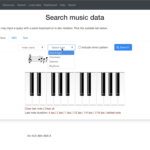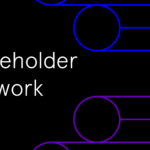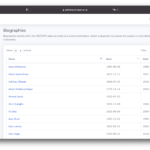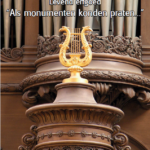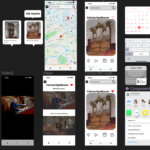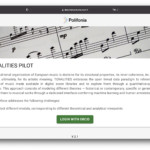Tunes
Influences between music tradition over centuries
The digital music collection of the Meertens Instituut (Amsterdam) includes thousands of melodies from Dutch popular culture, spanning a period of more than five centuries. To trace possible international origins of Dutch early popular music culture, this pilot will interlink the entire melody collection of the Meertens Institute with a large number of other European collections. The linked melodic data sets will be highly valuable for musicologists and music historians interested in cultural evolution of musical style and in oral transmission and variation.
The digital music collection of the Meertens Instituut (Amsterdam) includes thousands of melodies from Dutch popular culture, spanning a period of more than five centuries. The two main parts in the collection are 1) instrumental melodies from 16th and 17th century printed sources and manuscripts, and 2) folk songs from late 19th and 20th century sources, including song books and field recordings. The historical sources in which we find these melodies almost never mention their origins. Typically, the melodies have been notated after being in oral circulation for a while, and mostly appear under Dutch titles. Recently, incidental links with French court opera were discovered. Melodies from operas by e.g., Jean-Baptiste Lully (1632-1687) or André Campra (1660-1744) found their way into Dutch instrumental sources. One paradoxical observation is that during the late seventeenth and early eighteenth centuries the Kingdom of France and the Dutch Republic were at war. Apparently, this political context did not prevent dissemination of melodies from Lully, who was court composer of king Louis XIV, into the Dutch Republic. We also expect to find links with English sources, including John Playford’s The English Dancing Master (1651-), and with German sources. To trace possible international origins of Dutch early popular music culture, we will interlink the entire melody collection of the Meertens Institute with a large number of other European collections. Especially, the extensive NEUMA score library covers a highly relevant repertoire. We also will involve the Irish Traditional Music Archives (NUIG), and various openly available collections of musical scores (including RISM incipits, The Essen Folk Song Collection, the tune index from The Colonial Institute, themes from Barlow and Morgenstern’s A Dictionary of Musical Themes, and various collections of folk music in ABC notation). The resulting knowledge will be integrated in the Dutch Song Database, which is a publicly accessible documentation instrument for Dutch song culture hosted by the Meertens Institute. This will make the rich history of Dutch song culture available for both a wider public and for musicological scholars, supporting educational activities, musical performances, and research in music history. The linked melodic data sets will be highly valuable for musicologists and music historians interested in cultural evolution of musical style and in oral transmission and variation.
Pilot leader:
Peter van Kranenburg (Meertens Institute, KNAW)
